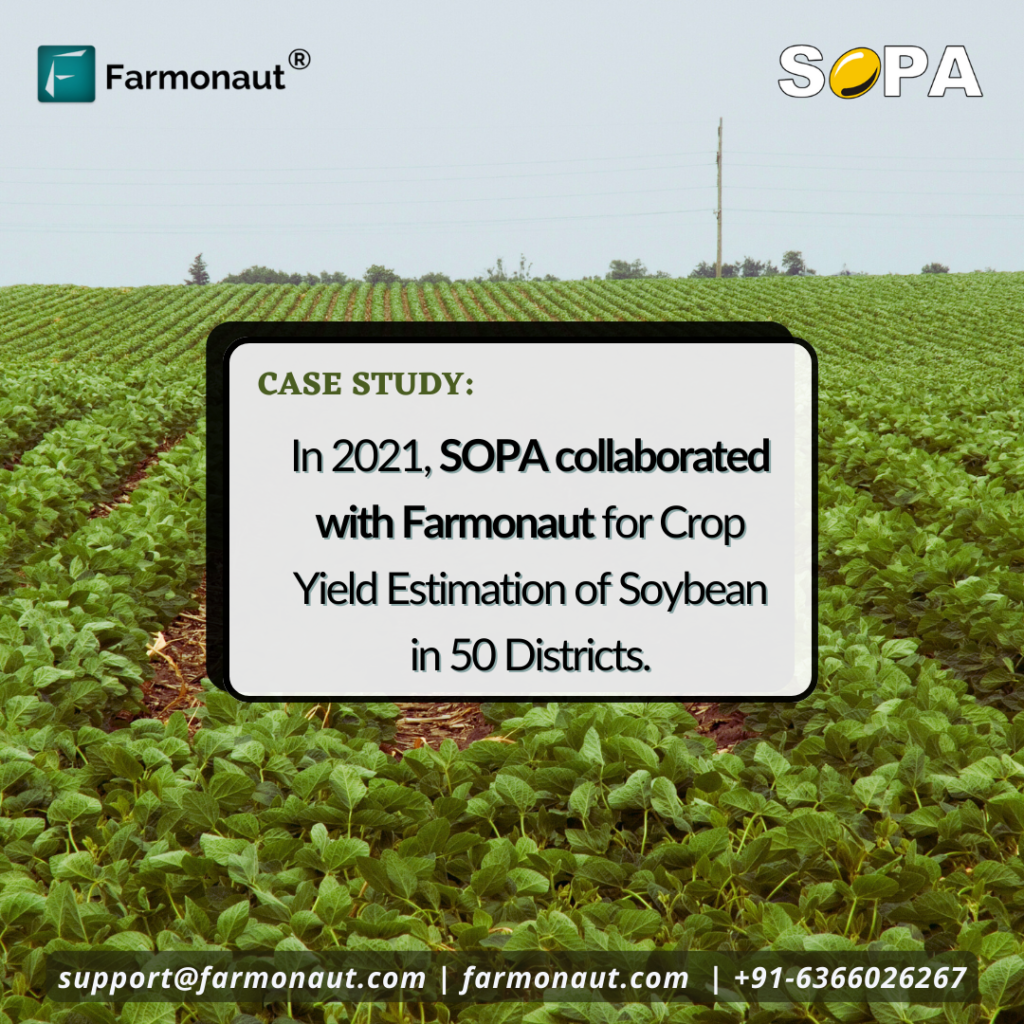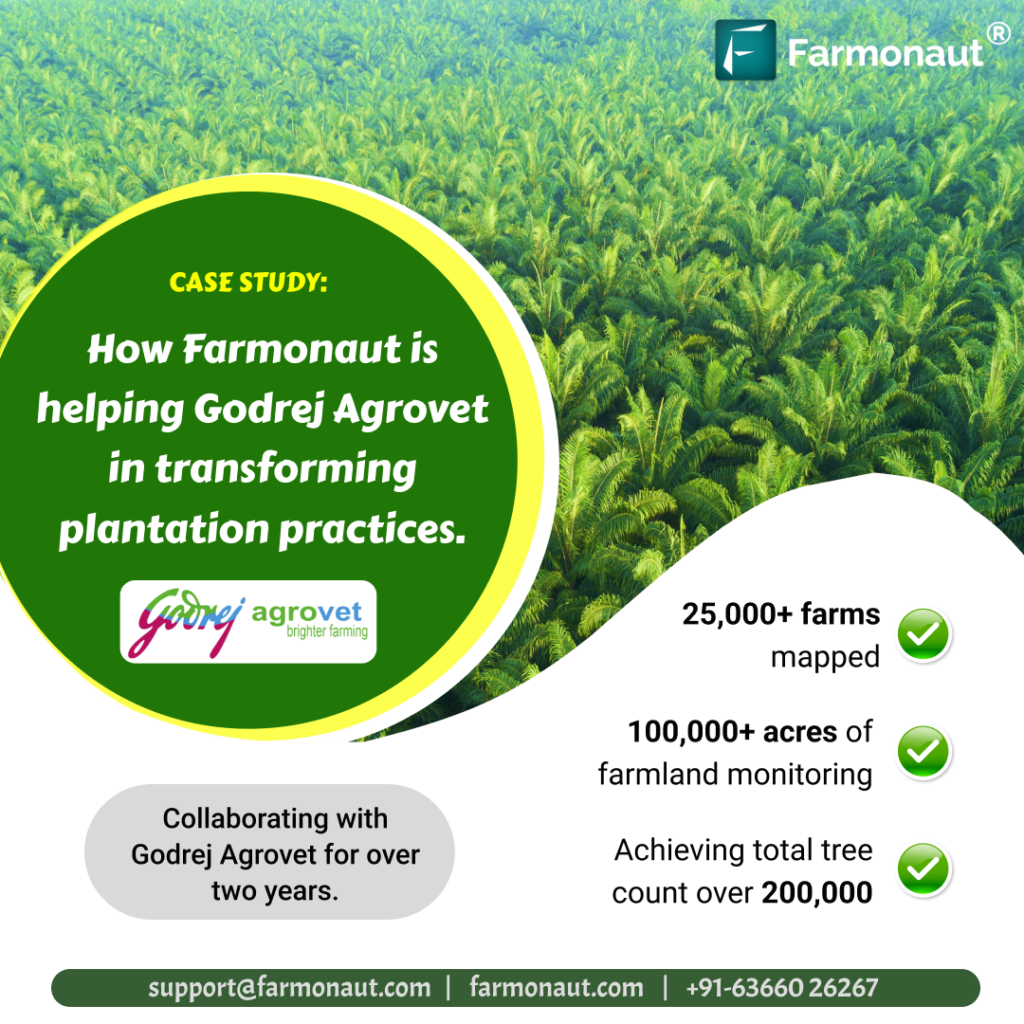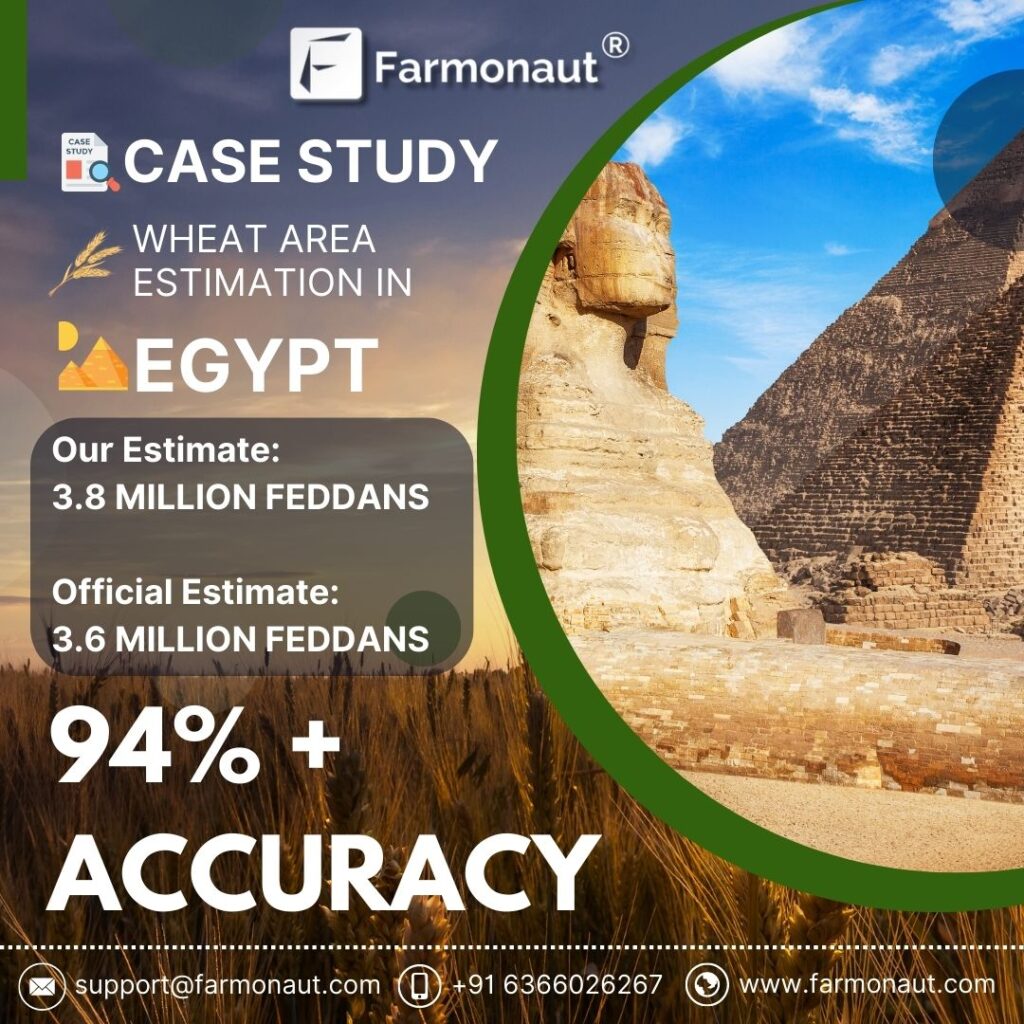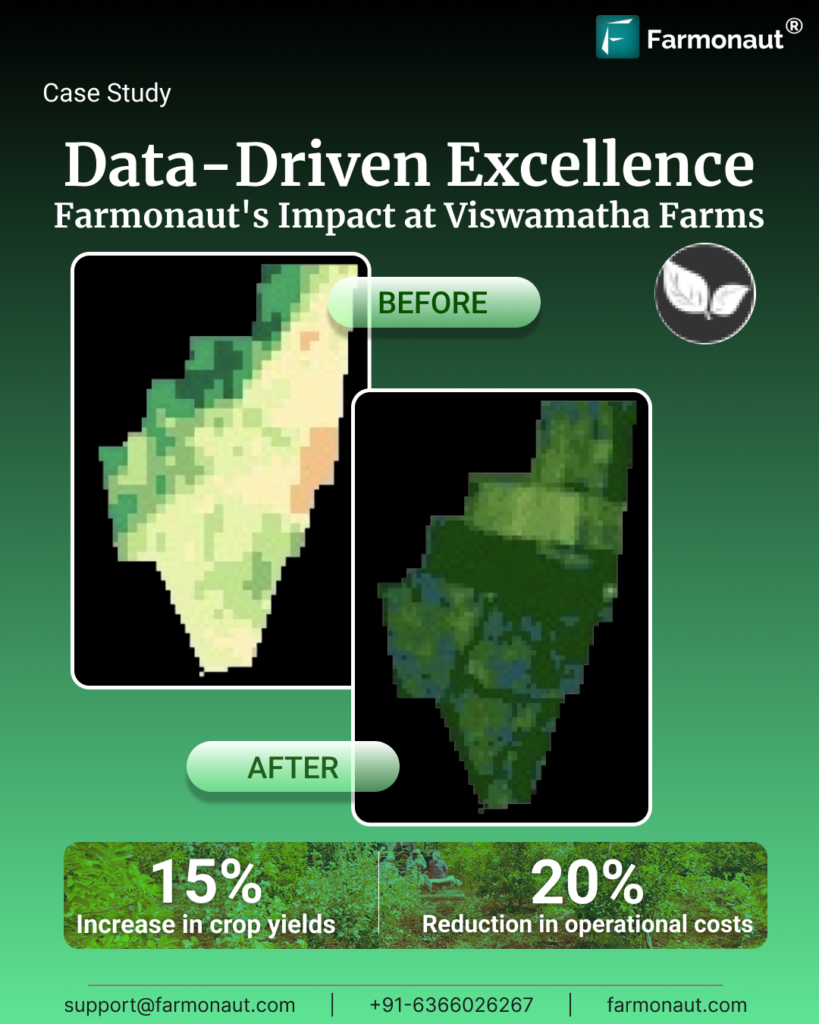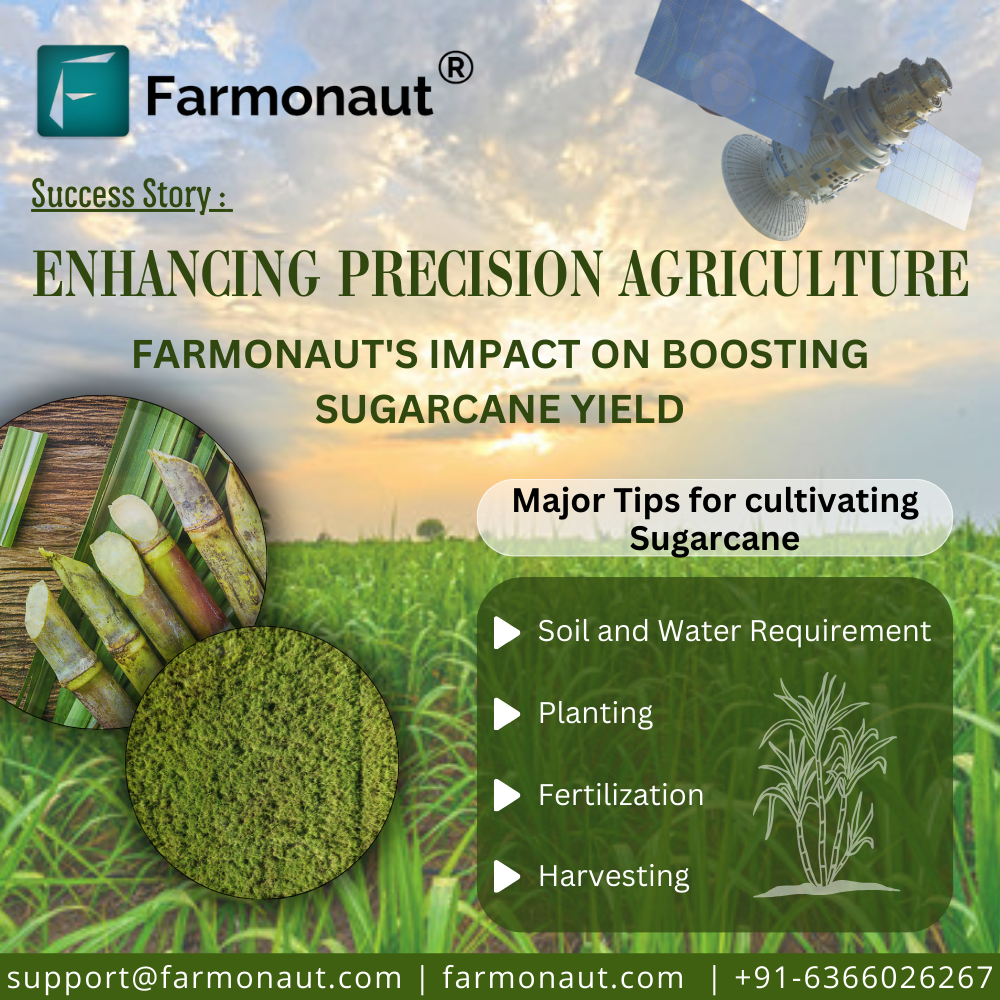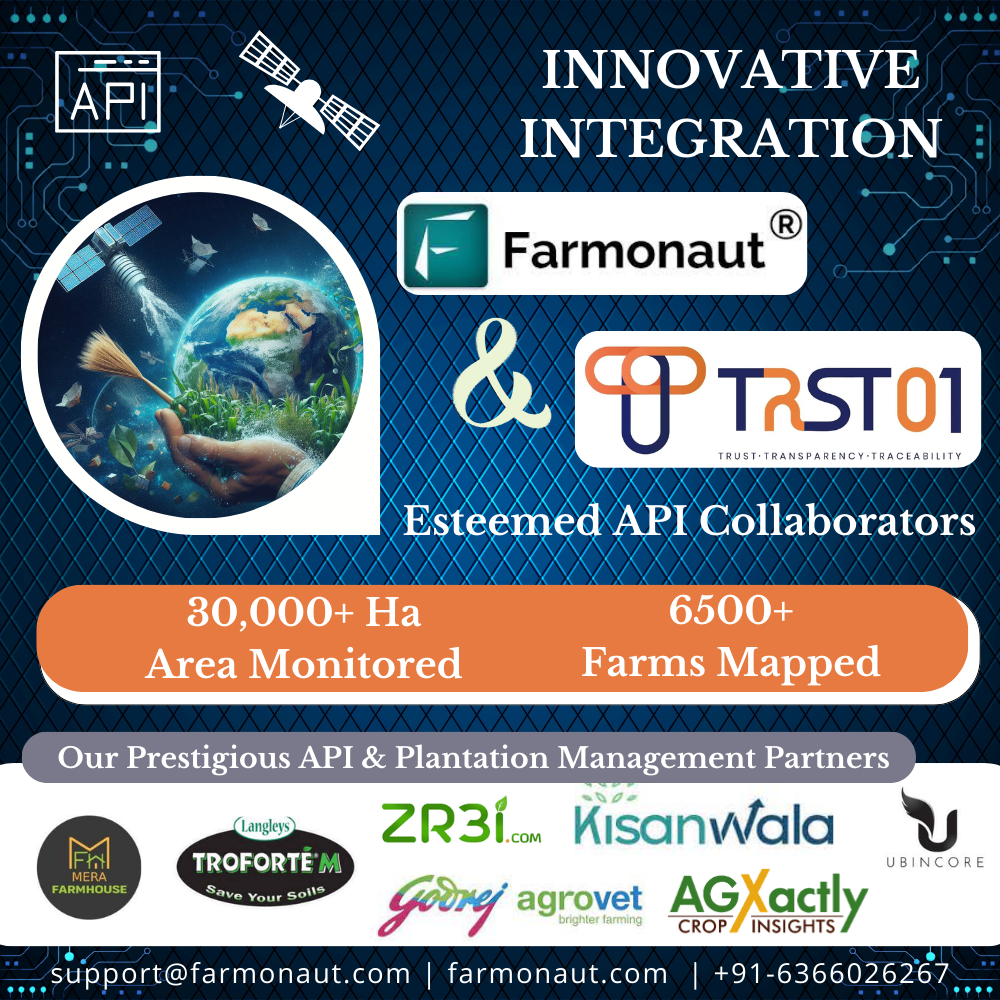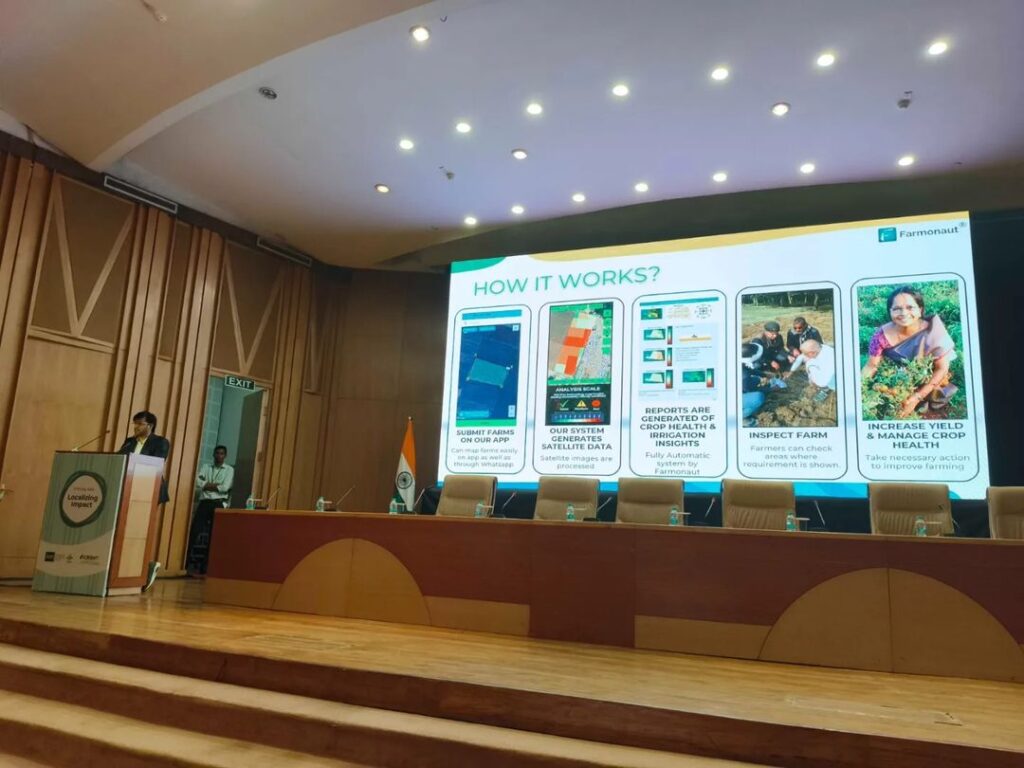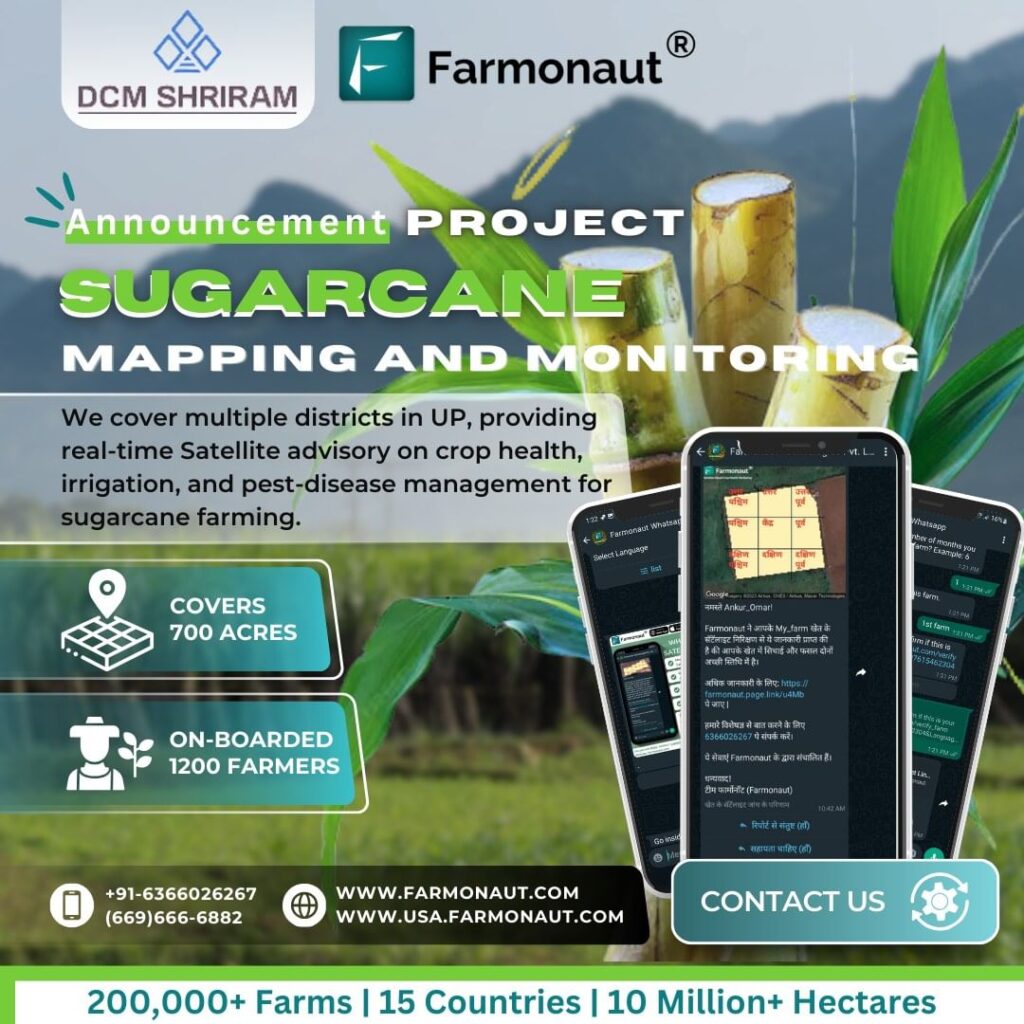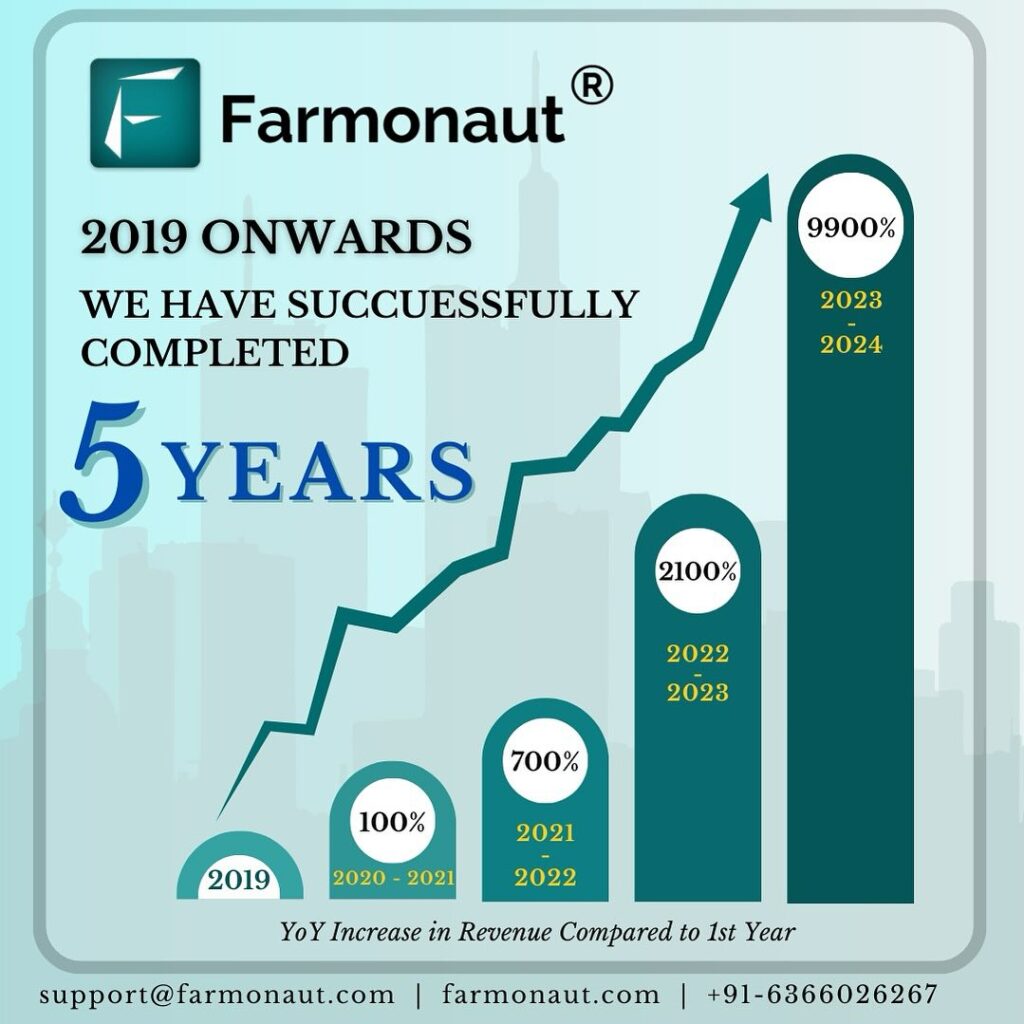Revolutionizing Agriculture: The Power of Natural Farming and Precision Agriculture
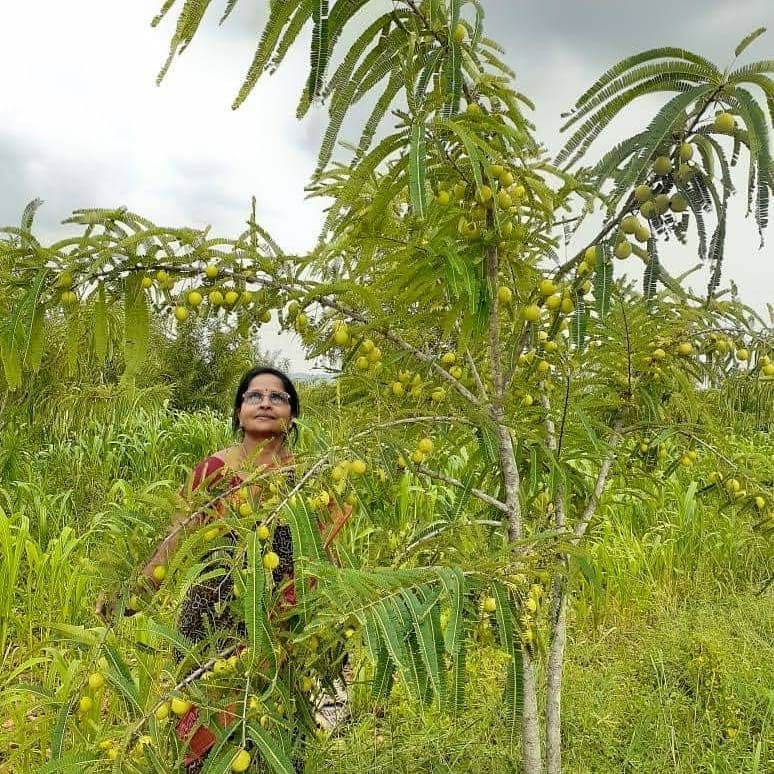
As we approach the end of this cultivation season, we at Farmonaut are thrilled to share the success story of Viswamatha Farms, one of South India’s most progressive natural farms. Their recent harvest of black gram, green gram, sorghum, pearl millet, and little millet, along with the upcoming harvest of Aonla and Pomegranate, serves as a testament to the power of combining natural farming practices with precision agriculture (PA) tools.
The Viswamatha Farms Success Story
Viswamatha Farms has demonstrated extraordinary commitment to sustainable and efficient farming practices. The farm owners’ hands-on approach, participating in every aspect of farm management from tilling to animal care, has set a new standard for agricultural excellence in the region.
Key achievements:
- Successful harvest of diverse crops
- Healthy crops with no diseases
- Optimal yield through natural farming and precision agriculture
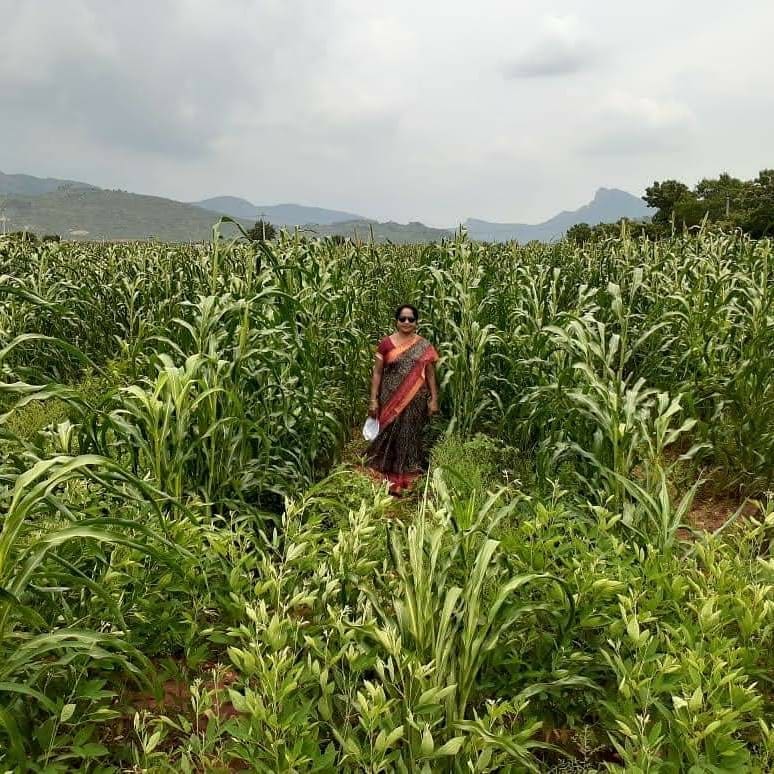
The Synergy of Natural Farming and Remote Sensing
At Farmonaut, we believe that the combination of natural farming practices and advanced remote sensing technologies can revolutionize the agricultural sector. Our satellite-based solutions provide farmers with invaluable insights that complement and enhance natural farming methods.
Benefits of Integrating Remote Sensing with Natural Farming:
- Reduced Chemical/Fertilizer Consumption: By identifying specific areas where crop health is suboptimal, farmers can apply inputs only where necessary, minimizing overall chemical use.
- Lower Labor Costs: Precise identification of critical areas allows for targeted allocation of labor resources.
- Water Conservation: Accurate data on plant water stress enables efficient irrigation practices, reducing water wastage.
- Increased Overall Yield: The combination of natural methods and data-driven decisions leads to optimized crop production.
- Improved Soil Health: Our Soil Organic Carbon (SOC) model helps maintain nutrient composition by identifying areas that require attention.
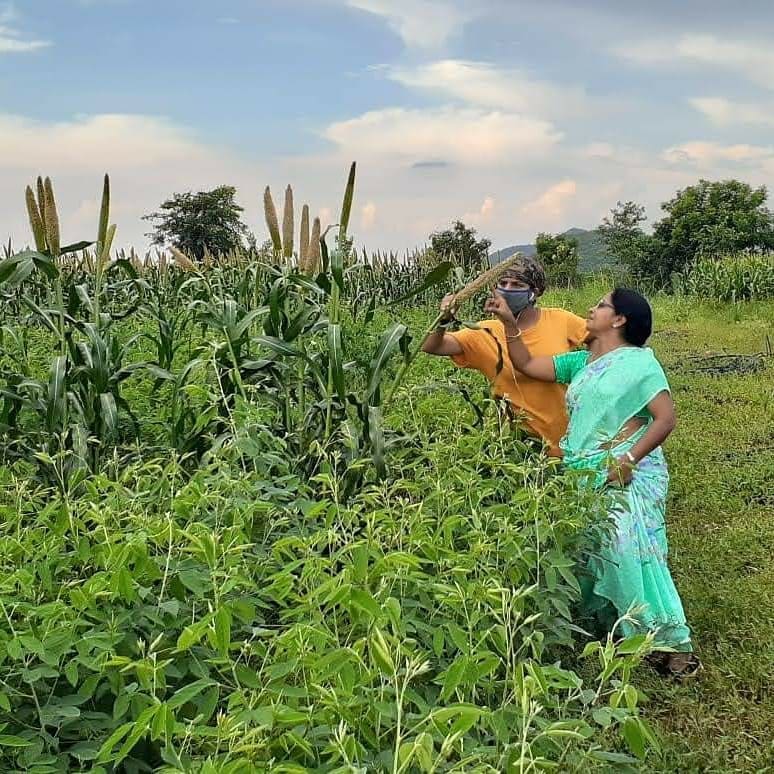
The Role of Soil Organic Carbon in Sustainable Agriculture
Understanding and managing soil organic carbon is crucial for sustainable farming practices. Let’s delve deeper into this vital component of soil health.
What is Soil Organic Carbon?
Soil organic carbon (SOC) is a key indicator of soil health and fertility. It plays a crucial role in maintaining soil structure, water retention, and nutrient availability.
Where organic carbon can be found in soil:
- Decomposing plant and animal matter
- Microbial biomass
- Stable organic compounds (humus)
Organic Carbon vs Organic Matter
While often used interchangeably, organic carbon and organic matter are not identical:
- Organic carbon refers specifically to the carbon component of organic compounds in the soil.
- Organic matter includes all organic components, including other elements like nitrogen, oxygen, and hydrogen.
Typically, organic carbon makes up about 58% of soil organic matter.
How to Increase Organic Carbon in Soil in India
Improving soil organic carbon levels is essential for sustainable agriculture in India. Here are some effective strategies:
- Implement crop rotation with legumes
- Practice conservation tillage
- Use organic mulches
- Apply compost and organic manures
- Grow cover crops
- Adopt agroforestry practices
Determination of Soil Organic Carbon
Accurate measurement of soil organic carbon is crucial for effective soil management. Common methods include:
- Walkley-Black method
- Dry combustion analysis
- Loss on ignition (LOI) method
- Near-infrared spectroscopy (NIRS)
At Farmonaut, we use advanced satellite imagery and our proprietary SOC model to provide non-invasive, large-scale estimations of soil organic carbon levels.
Function of Carbon in Soil
Carbon plays several crucial roles in soil health and fertility:
- Improves soil structure and aggregate stability
- Enhances water retention capacity
- Increases cation exchange capacity (CEC)
- Supports microbial activity and biodiversity
- Acts as a long-term nutrient reservoir
- Contributes to soil erosion resistance
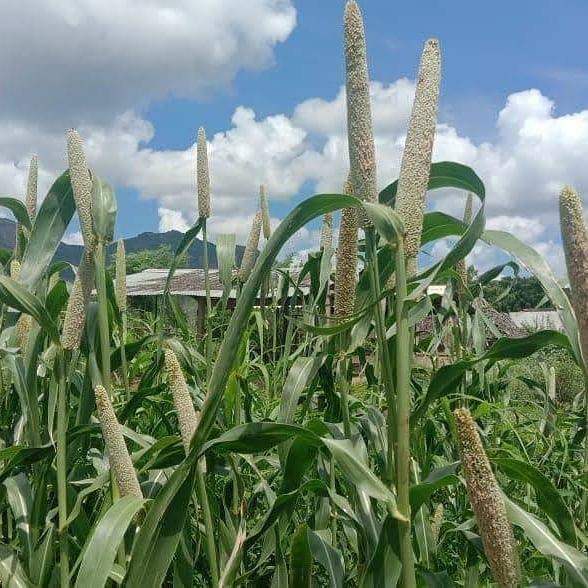
Farmonaut’s Cutting-Edge Solutions for Precision Agriculture
At Farmonaut, we’re committed to making precision agriculture accessible and affordable for farmers worldwide. Our advanced satellite-based farm management solutions integrate innovative technology with data-driven insights to revolutionize traditional farming practices.
Key Technologies and Services:
- Satellite-Based Crop Health Monitoring: We utilize multispectral satellite imagery to provide real-time insights into vegetation health, soil moisture levels, and other critical metrics.
- Jeevn AI Advisory System: Our AI-driven personalized farm advisory tool delivers real-time insights, weather forecasts, and expert crop management strategies.
- Blockchain-Based Product Traceability: We ensure transparency and security in agricultural supply chains through advanced blockchain technology.
- Fleet and Resource Management: Our tools optimize vehicle usage and improve overall management of agricultural machinery.
- Carbon Footprinting: We help agribusinesses monitor and reduce their environmental impact through real-time emissions tracking.
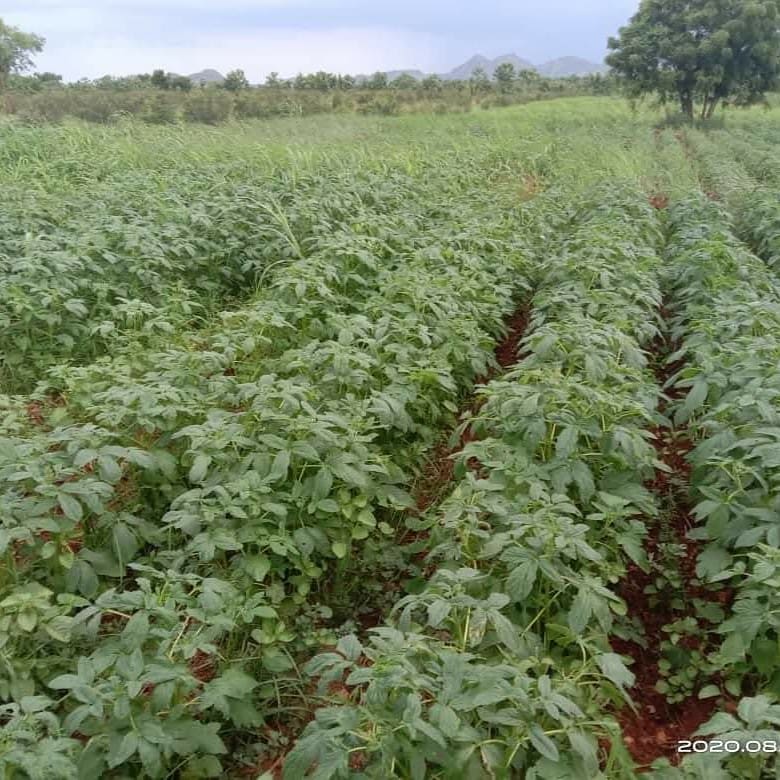
Comparing Farmonaut Satellite System with Drone and IoT-based Farm Monitoring
| Feature | Farmonaut Satellite System | Drone-based Monitoring | IoT-based Monitoring |
|---|---|---|---|
| Coverage Area | Large scale (thousands of hectares) | Limited (few hectares per flight) | Limited to sensor placement |
| Frequency of Data Collection | Regular (every 3-5 days) | On-demand (requires manual operation) | Continuous |
| Initial Investment | Low (subscription-based) | High (equipment cost) | Moderate to High (sensors and network) |
| Operational Complexity | Low (fully automated) | High (requires skilled operators) | Moderate (setup and maintenance required) |
| Weather Dependency | Low (can penetrate clouds) | High (affected by wind and rain) | Low (but sensors can be damaged) |
| Data Processing | Automated with AI | Often requires manual processing | Automated but limited to sensor data |
| Scalability | Highly scalable | Limited by equipment and operators | Requires additional investment for scaling |
How Farmonaut Empowers Farmers
Our platform provides a range of benefits that enable farmers to make informed decisions and optimize their agricultural practices:
- Real-time crop health monitoring
- Precision application of inputs
- Efficient water management
- Early pest and disease detection
- Yield prediction and optimization
- Soil health assessment and management
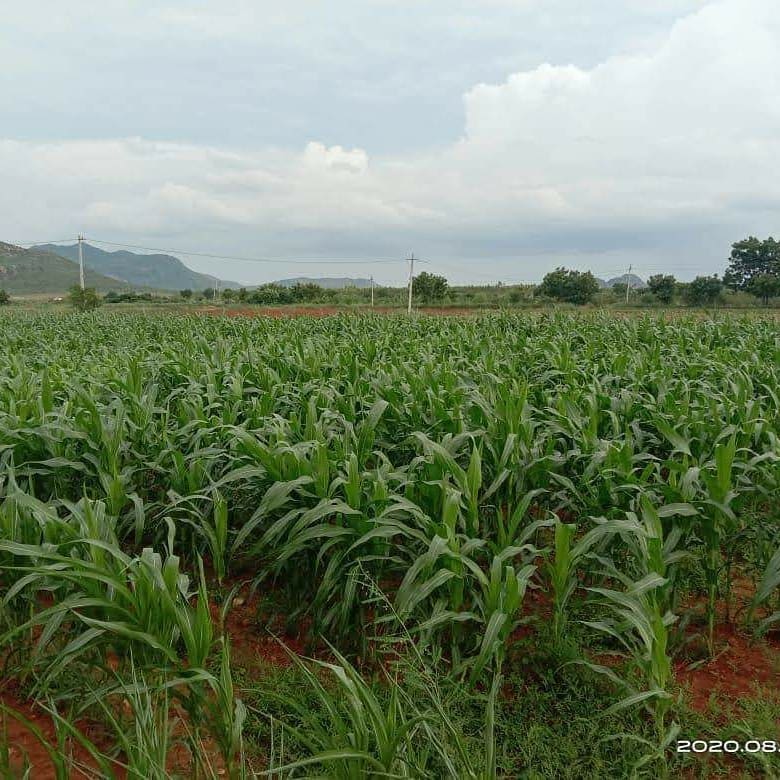
Sustainable Agriculture for a Better Future
By combining natural farming practices with precision agriculture tools like those offered by Farmonaut, we can create a more sustainable and productive agricultural sector. This approach not only reduces the reliance on chemical inputs but also helps preserve soil health, conserve water resources, and increase overall crop yields.
Key Benefits of This Integrated Approach:
- Reduced environmental impact
- Improved soil health and biodiversity
- Enhanced food quality and safety
- Increased farmer profitability
- Better resource management
- Resilience to climate change

Join the Agricultural Revolution with Farmonaut
We invite farmers, agribusinesses, and agricultural enthusiasts to join us in revolutionizing the farming sector. Our user-friendly platforms are accessible through various channels:
- Android App: Download Here
- iOS App: Download Here
- Web Platform: Access Here
For developers and businesses interested in integrating our satellite and weather data into their systems, we offer comprehensive API access. Learn more about our API capabilities here.
Frequently Asked Questions (FAQ)
- Q: What is precision agriculture?
A: Precision agriculture is a farming management concept that uses technology to observe, measure, and respond to variability in crops. It aims to optimize returns on inputs while preserving resources. - Q: How does Farmonaut’s satellite monitoring work?
A: Farmonaut uses multispectral satellite imagery to analyze various aspects of crop health, including vegetation indices, soil moisture, and more. This data is processed using AI algorithms to provide actionable insights to farmers. - Q: Is Farmonaut suitable for small-scale farmers?
A: Yes, Farmonaut’s solutions are designed to be accessible and affordable for farmers of all scales, including small-scale operations. - Q: How often is satellite data updated?
A: Satellite data is typically updated every 3-5 days, depending on the specific location and satellite coverage. - Q: Can Farmonaut help with organic farming practices?
A: Absolutely. Farmonaut’s insights can be particularly valuable for organic farmers, helping them optimize natural resource management and detect issues early without relying on chemical inputs. - Q: What types of crops can be monitored using Farmonaut?
A: Farmonaut can monitor a wide range of crops, including grains, pulses, fruits, vegetables, and plantation crops. - Q: How does Farmonaut contribute to sustainable agriculture?
A: By providing precise data on crop health and resource needs, Farmonaut helps farmers reduce unnecessary inputs, conserve water, and maintain soil health, all of which contribute to more sustainable farming practices. - Q: Is internet connectivity required to use Farmonaut?
A: Internet connectivity is required to access the Farmonaut platform and receive updates. However, once data is downloaded, many features can be accessed offline. - Q: How does Farmonaut’s pricing work?
A: Farmonaut offers flexible, subscription-based pricing models that vary based on the area monitored and the frequency of updates. Specific pricing details can be found on our subscription page. - Q: Can Farmonaut integrate with other farm management software?
A: Yes, Farmonaut offers API access that allows for integration with other farm management tools and software systems.
For any additional questions or support, please don’t hesitate to contact us at [email protected] or +91-6366026267. We’re here to help you revolutionize your farming practices and achieve sustainable, profitable agriculture.

Conclusion: Embracing the Future of Agriculture
As we’ve explored throughout this blog post, the integration of natural farming practices with precision agriculture tools like Farmonaut represents a powerful pathway towards sustainable, efficient, and productive agriculture. The success story of Viswamatha Farms serves as an inspiring example of what’s possible when traditional wisdom meets cutting-edge technology.
By leveraging satellite data, AI-driven insights, and a commitment to soil health and natural practices, farmers can significantly reduce their environmental impact while simultaneously improving yields and profitability. The role of soil organic carbon in maintaining healthy, resilient agricultural ecosystems cannot be overstated, and tools that help farmers monitor and manage this crucial resource are invaluable.
Farmonaut stands at the forefront of this agricultural revolution, offering accessible, affordable, and powerful solutions that empower farmers of all scales to make data-driven decisions. From real-time crop health monitoring to precision resource management and beyond, our suite of tools is designed to address the complex challenges facing modern agriculture.
As we look to the future, it’s clear that the path to food security, environmental sustainability, and agricultural prosperity lies in the intelligent integration of technology and natural farming practices. We invite you to join us on this journey, whether you’re a small-scale organic farmer, a large agribusiness, or simply someone passionate about the future of food production.
Together, we can cultivate a greener, more productive, and more sustainable agricultural landscape for generations to come. Explore Farmonaut today and take the first step towards revolutionizing your farming practices.



